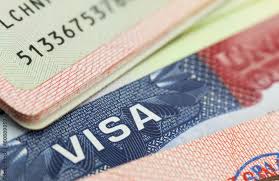New visa rules in 2024 have thrown a curveball at Indian students hoping to study abroad. For instance, the UK tightened its regulations in January. Now, it's harder to bring family members along with a student visa. The only exception is for postgraduate students. Additionally, switching from a student visa to a work visa in the UK now requires completing your studies first.
Canada also implemented changes around the same time. The biggest one? They're limiting the total number of student permits issued in 2024 to 360,000 – a significant 35% drop from 2023. The quota for 2025 will be decided later this year. On top of that, all international students in Canada (except those going to Quebec) need to show they have more money for living expenses – $20,635 compared to the previous $10,000.
Changes have made it more challenging for Indian students to pursue their study abroad dreams in some popular destinations.
The US has implemented a new rule to help prevent immigration fraud. Indian students applying for F, M, or J student visas will now need to use their passport information to schedule visa appointments. This additional step will allow US officials to verify the identity of applicants early in the process.
Meanwhile, Australia has also tightened requirements for international students in general, not just those from India. International students will now need to demonstrate a higher level of English proficiency by achieving a minimum score on the IELTS exam. Additionally, they'll need to show they have more financial resources available by meeting a new minimum savings threshold. These changes are likely intended to ensure that international students are prepared for academic success in Australia and have sufficient funds to support themselves during their studies.
While traditional powerhouses like the US, Canada, UK, and Australia might be implementing stricter policies for international students, it's not all doom and gloom. A wave of new destinations are emerging as attractive alternatives. Places like Ireland, France, and Italy are not only offering excellent academic programs but are also actively streamlining their visa processes. This can translate to faster application times, fewer required documents, and potentially a smoother overall experience for international students seeking an enriching study abroad adventure.
International students rejoice! Several European countries are welcoming graduates with extended stay options:
- Ireland: Masters graduates can now leverage a post-study visa to stay in Ireland for two years after completing their program. This extended time allows them to seek employment and gain valuable experience in the Irish job market.
- France: Indian graduates can explore opportunities across Europe with a new five-year Schengen visa. This visa grants them visa-free travel within the Schengen zone, encompassing 26 European countries.
- Italy: Taking a similar stance, Italy is introducing a one-year temporary residency permit for Indian graduates. This allows them to gain professional experience in Italy after their studies, potentially leading to longer-term opportunities.
These recent policy changes underscore the growing importance of international education and its link to positive international relations. As someone who has navigated the challenges of being an international student myself, I'm keenly aware of the anxieties strict visa regulations can cause. Often, talented individuals with the academic qualifications to thrive are unfairly limited by arbitrary visa restrictions. These new policies offer a glimmer of hope, allowing international students to pursue their educational goals and potentially build successful careers abroad.
Don't be discouraged by strict visa rules! Here are some steps you can take to increase your chances of success:
- Stay on top of things: Keep yourself updated on the latest visa requirements from the government sources of your chosen country. Knowing the process can help you avoid surprises.
- Start planning early: Don't wait until the last minute. Apply for your visa well in advance to account for any delays or additional paperwork.
- Get expert advice: Talk to immigration specialists, your school's international student office, or lawyers familiar with immigration law. They can give you personalized guidance for your situation.
- Think outside the box: Consider countries with easier visa policies that might still offer programs you're interested in. Germany, Ireland, Italy, and France are all becoming more welcoming to international students.
- Make your application shine: Focus on good grades, strong language skills, and relevant experience to stand out from the crowd. A compelling application can overcome visa hurdles.
- Connect with others: Talk to current or former international students who have been through the visa process in your chosen country. Their experiences can provide valuable tips and support.
- Stay positive: Getting a visa can be challenging, but don't give up! Keep your long-term goals in mind and stay motivated.
By being proactive, getting help, and being flexible, you can navigate the complexities of strict visa policies and achieve your dream of studying abroad.


























0 Comments